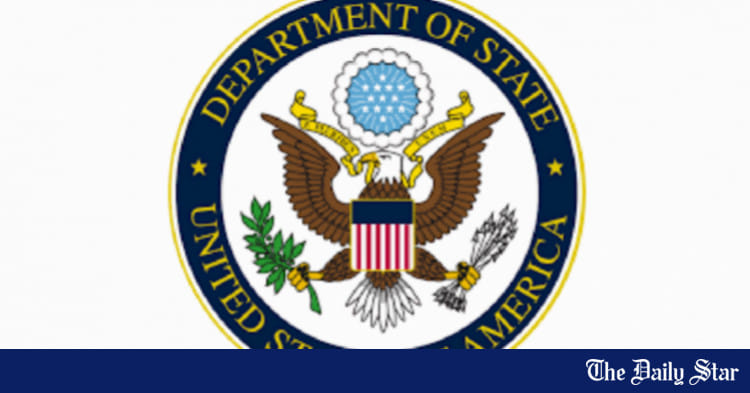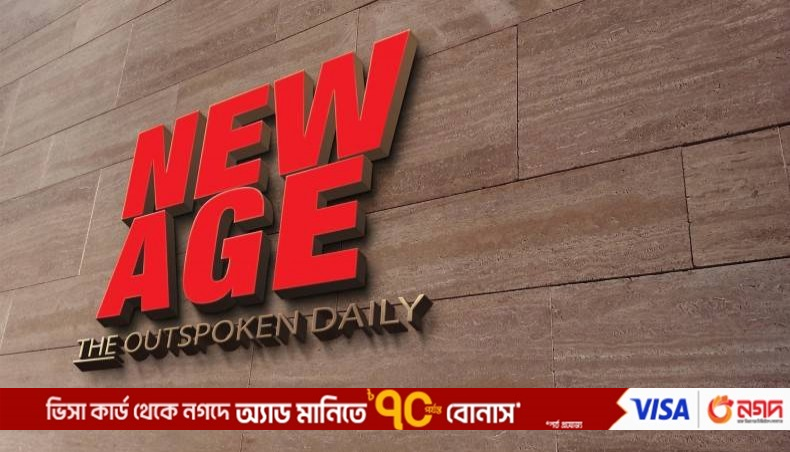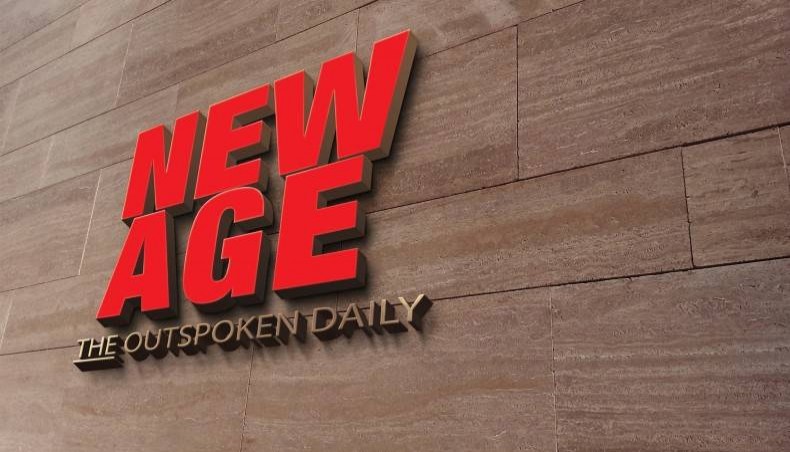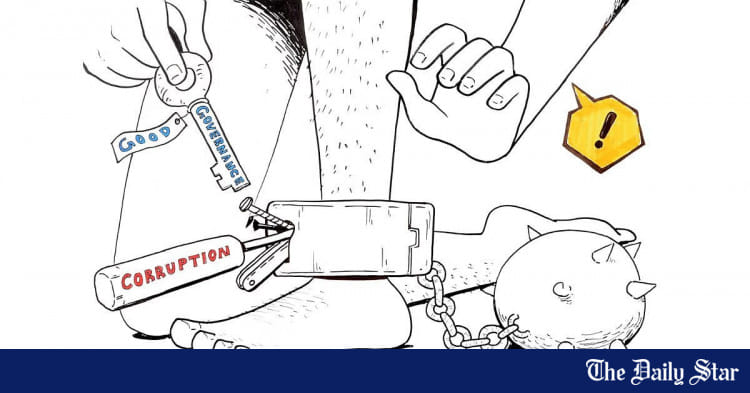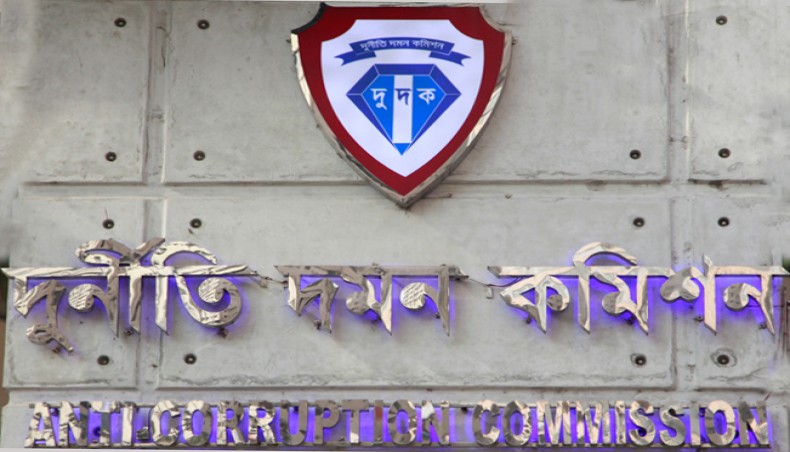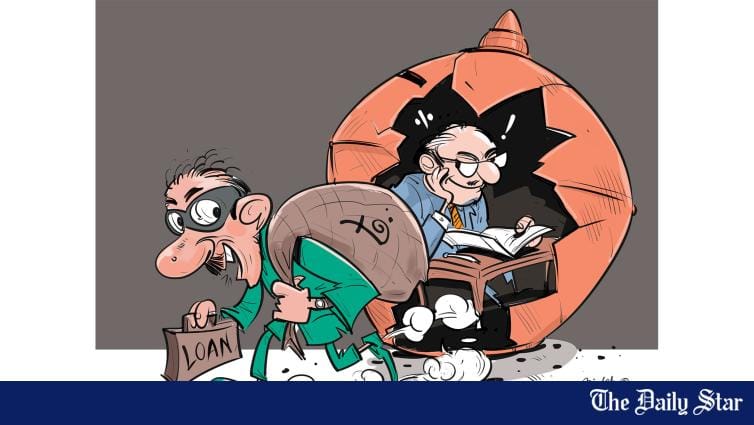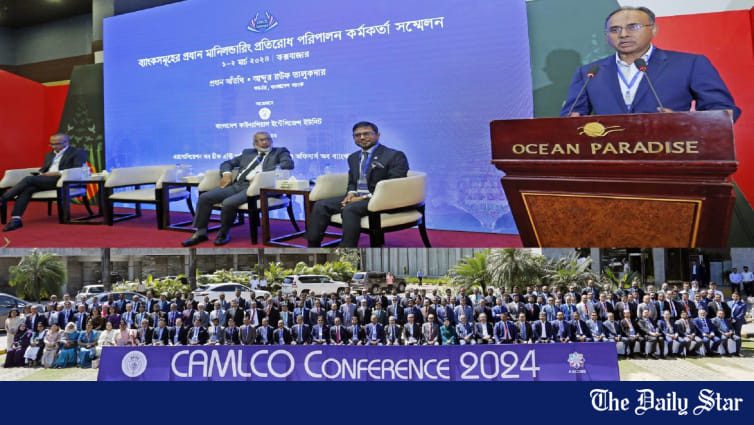In terms of pledges against corruption, Bangladesh may be at par with many countries in similar situations. We also have a fairly elaborate façade of state capacity backed by policies, procedures, strategies, laws, institutions, and systems in place, which have so far delivered precious little.
Iftekharuzzaman is the Executive Director, Transparency International Bangladesh
Political Will - the Rhetoric & Reality
Bangladesh Awami League's election manifestos over the years show specific anti-corruption pledges repeated since the election manifesto of 1986 when Sheikh Hasina took over the leadership of the party. Anti-corruption pledges have featured in important public documents like the successive five-year plans, perspective plans, laws, and policies adopted during her successive regimes. Starting from the Right to Information Act 2009 enacted in the very first session of the ninth parliament, a series of laws and policies have been created like the Protection of Information Disclosure Act 2011, National Integrity Strategy 2012, Anti-money Laundering Act 2012, and many more. That the pledges and the anti-corruption legal and institutional capacity remain unenforced and that many of these have also been undermined many times in the name of reforms is also well-documented.
Legal and administrative changes that have curbed the authority of the Anti-Corruption Commission (ACC) include the 2023 Income Tax Act which thwarted the ACC's access to income tax-related data of individuals under investigation for corruption. Nothing but the agenda of selective protection of officials can explain the discriminatory and unconstitutional provision for ACC to obtain prior permission under the Civil Service Act before taking into custody public officials for corruption-related investigations. No less damaging is the amendment of the Money Laundering Prevention Act, 2012 to deprive ACC of the authority to investigate all but one of the 27 scheduled offenses related to illicit financial transfers. ACC itself set in January 2023 an unprecedented example of motivated self-disempowerment when by an administrative order bulk of the Commission's executive authority was transferred to its bureaucracy perceived to be designed to protect those linked with power. The commitment to annually disclose the income and wealth statement of parliament members, ministers, and respective families has not been met. Abuse of power related to public contracts, illegal grabbing, and occupancy of land, water bodies, forests, and khas lands by the leaders, agents, and activists of political leaders have become part of the political culture.
Public procurement rules were amended to provide participation in bidding without expertise or experience for contracts up to a certain threshold. Good initiatives like Electronic Government Procurement have been manipulated to benefit the politically linked. To facilitate kleptocratic control of procurement in the power sector an initially short-term provision to freeze the scope of checks and balances has been subsequently given permanent legal status. Nothing has been done to keep the constitutional commitment repeated under the election manifesto to establish the Ombudsman's office except an abortive creation of a so-called tax ombudsman's office intended to reward a favored individual rather than a stated purpose. Defying the Constitutional provision and electoral commitment the provision has been successively made to and legalize black money which for all practical purposes encourages further corruption.
Cartoon: TIB
CORRUPTION – THE 'VERY SERIOUS PROBLEM'
There is no doubt that pervasive corruption is among the top-ranking issues of public concern in Bangladesh, especially for the common people who are not only the worst victims of petty corruption in service delivery sectors, but also the load bearers of grand corruption that eats up 3 percent of GDP by conservative estimates. Bangladesh has acquired a dubious reputation as a global leader in money laundering with at least $12 billion illicitly transferred annually out of the country. The beneficiaries of power abuse are not only enjoying impunity but also accumulating vast wealth. The election affidavit data showing mind-boggling rates of increase of income and wealth of the candidates for the 2024 parliamentary elections represent just the tip of the iceberg that explains why the number of super-rich grows at one of the fastest rates in the world. Nothing but discriminatory implications of corruption can explain why the top 10 percent of people own 40 percent of income, 5 percent own 30 percent, and just one percent own more than 16 percent.
Although grouped in the second lowest category of 'hybrid regime' as per the Democracy Index of the Economic Intelligence Unit, Bangladesh's score is not only twelve points lower than its group average of 36 but also five points less than 29 for the lowest category of authoritarian regimes. Our performance is also seven points worse than countries having no electoral democracy as per Freedom House research. Bangladesh remains the second lowest in South Asia, above only Afghanistan. We have the fourth lowest score among 31 Asia-Pacific countries, while our score is also lower than the average for the globally lowest-performing Sub-Saharan Africa region.
Where lies the key
Reasons for our poor performance in corruption control are not far to seek. Corruption – grand or petty – has rendered our institutions dysfunctional which has in turn prevented the rule of law, and granted impunity to the corrupt, especially the politically and governmentally connected. State institutions mandated to control corruption including the Anti-Corruption Commission (ACC) have been under political and bureaucratic influence. The Parliament, the apex accountability institution has been converted into the monopolized territory of the ruling party denying it the due role of holding the government to account and control corruption.
Other institutions of national integrity and accountable governance, especially law enforcement, administration, rule of law, and justice have also been subjected to partisan political influence. Policy capture using lobby power, especially in the banking sector ravaged by loan default, financial fraud, and money laundering has flourished. Governance has become dependent on surveillance for targeted control and intimidation of media and civil society driven by intolerance of dissension, disclosure, and reporting on corruption.
THE RECIPE IN THE 2024 MANIFESTO
In this context, the recipe for corruption control as listed in the 2024 election manifesto of the ruling party, perhaps the most elaborate set of pledges so far against corruption in such a document, deserves particular attention. Pledging continuation of the zero-tolerance policy against corruption, the manifesto recognizes that "corruption stands as the primary impediment to the economic development, poverty alleviation, infrastructure improvement and moral advancement of the nation. It hinders the realization of overarching developmental goals for the country. Combating corruption necessitates more than just law enforcement and punishment, it requires the establishment of a social movement." It also pledges to add education curriculum content addressing the evils of corruption and prevention measures to instill an anti-corruption attitude among students.
The ruling party commits that "strict measures will be implemented to eradicate illegal wealth acquisition, bribery and abuse of power, nepotism, muscle power violence, and racketeering". It further pledges that "transparency and accountability in project selection, cost determination, quality audit of completed projects, and government procurement and tender verification will be consistently ensured." It goes on to commit that the "use of information technology will be expanded across all areas including administration, the police department, courts, education, and healthcare, to prevent corruption in the administration."
All these are like music to the ear of any Bangladeshi today. However, the only question is whether and to what extent these lofty promises will be translated into practice and what is the roadmap, or whether these will once again remain just a wish-list to gather dust.
IN-BUILT NO BREACH OF THE SYSTEM
Countries that have consistently performed at the top levels in credible global corruption control assessments over the years include Singapore which is attributed to the arguably benevolent authoritarian rule of Lee Kuan Yew and his uncompromising practice of zero tolerance against breach of the system. That is not to say corruption does not exist in Singapore. High-profile politically connected people including Ministers in Singapore have been involved in corruption. In a recent such episode, on January 16, 2024, the powerful Transport Minister resigned after being charged with allegations of accepting gifts from a Malaysian billionaire for a business favor. Singapore's reputation as the least corrupt country is also tainted by the fact that like many of its peers of the least corrupt club, it remains one of the most attractive destinations of illicit financial transfers facilitated by syndicates of various 'professional experts'.
Although Singapore has lost five points in twelve years since 2012, in terms of CPI it continues to be among the top ranking countries in terms of corruption control. Many often attribute Singapore's success to one of the highest-paid public sector officials and politicians, which is only part of the story. The most important factor is the built-in deterrence against corruption in the system. In 1986, soon after the Singapore Corrupt Practices Investigation Bureau (CPIB) started an investigation in November for corruption against Teh Cheang Wan, incumbent Minister for National Development since 1979, he resigned and committed suicide, leaving a note that said, "I feel it is only right that I should pay the highest penalty for my mistake".
What Lee Kwan Yew said in a parliamentary speech a few weeks after the incident, is pertinent for any political leader, Leader of the House, and Head of the Government committed to corruption control, "there is no way a Minister can avoid investigations and a trial if there is evidence to support one. The purpose is not just to be righteous. The purpose is to create a system which will carry on because it has not been compromised… if I had compromised, that is the end of the system."
Delivering her opening speech at the first meeting of the Cabinet formed after the 12th national election, the Prime Minister stated that she would not tolerate any corruption, particularly in the public sector and public procurement, and stressed the need for financial discipline as well as transparency and accountability. One would expect the message to be not only to her Cabinet and public officials but also to every component of the power base of the Government. The extent to which corruption in Bangladesh will be effectively controlled consistent with these lofty pledges and pronouncements will depend on whether the individual and collective lobby-power lobby power of the key actors in political and governance space will be exercised with some semblance of public interest instead of treating their respective positions of power as a license for private gain.
RIGHTEOUS AND BENEVOLENT EXERCISE OF THE MONOPOLIZED POWER?
Only a righteous and benevolent exercise of the monopolized authority in political and governance space can take us anywhere near any meaningful implementation of the anti-corruption election pledges of the government. To prevent more of the same, the Government may consider commissioning an independent task force to develop a White Paper on a time-bound Anti-Corruption Action Plan. It can be constituted by an equal number of Government representatives and independent experts.
The Prime Minister started her fifth overall and fourth successive tenure with much higher authority and power. She has made it incumbent upon herself to walk her talk, especially her declaration while launching the party manifesto 2024 that lessons will be taken from past mistakes to serve the public interest. The problem is that within her power base lie the perpetrators, protectors, and promoters of corruption. It remains to be seen if she can exercise the unrestricted and unaccountable authority that has no conventional institutional structures of checks and balances, with righteousness and benevolence putting public interest on top where no one will enjoy impunity irrespective of identity or status.








































